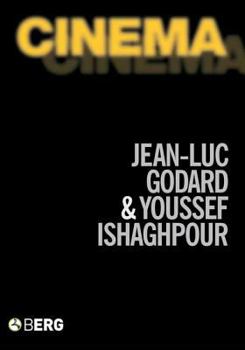Cinema: The Archaeology of Film and the Memory of a Century
Select Format
Select Condition 
Book Overview
Cinema is quite simply a unique book from one of the most influential film-makers in the history of cinema. Here, Jean-Luc Godard looks back on a century of film as well as his own work and career in the industry. Born with the twentieth century, cinema became not just the century's dominant art form but its best historian. Godard argues that - after the century of Chaplin and Pol Pot, Monroe and Hitler, Stalin and Mae West, Mao and the Marx Brothers...
Format:Hardcover
Language:English
ISBN:1845201965
ISBN13:9781845201968
Release Date:February 2005
Publisher:Berg Publishers
Length:160 Pages
Weight:0.60 lbs.
Dimensions:0.7" x 5.3" x 7.5"
Customer Reviews
2 ratings
Lack of narrative structure a problem for fans of Godard?
Published by Thriftbooks.com User , 15 years ago
Shopping for Christmas presents in a book store in the Latin Quarter, I remember leafing through a collection of the century's best photographs as taken by the French Associated Press. In the collection was a shot taken not long after the end of the Second World War, its subject a group of protestors marching in the Paris streets. Together holding a banner in lead of the march were a group of young and well-known French film stars. The cause of their protest was the encroaching American studio system, which, by locking in distribution rights in the lucrative French market, was consequently eliminating jobs for French actors. Their banner indicated the importance of preserving French culture. How surprising, I thought, to view this evidence of perceived Americanization appearing some 60 years ago. As French cinema culture developed over the coming years, American films remained common fare (though native film made up the bulk of titles) for the French, who would use their own critical standards to judge the successes and failings of Hollywood. As the French New Wave took root in the fifties, the auteurs associated with the movement set out to break Hollywood conventions, and financially supported by the Gaullist government, managed to reclaim for France some of the cultural ground previously held as lost to the studio system. While not overly successful on a commercial level, the French New Wave helped establish cinema as a recognized medium for art, and gave breath to cinematic criticism. It follows that Jean-Luc Godard, preeminent auteur and co-founder of the French New Wave, is among the best-qualified voices to comment on a century of cinema, to probe its root elements and map its future trajectories. Since the days of Godard's breakthrough À bout de souffle, he has been recognized as a cinematic pioneer, his critical vision already articulated in the Cahiers du cinéma, those blueprints of the New Wave, which he edited. Now, in a conversation with keen critic Youssef Ishaghpour, Godard attempts to get at the artistic potential of audio-visual media. These elucidating conversations draw on the entire canon of film as they critique Godard's own art, a recent project of incredible density entitled Histoire(s) du Cinéma. Cinema: The Archaeology of Film and the Memory of a Century is ostensibly a companion to this difficult and difficult-to-locate series in which Godard once again pushes the accepted boundaries of the cinematic medium. Histoire(s) du Cinéma remains unavailable in the U.S. due to the nature of the work, which layers image upon image, often combining the overlay with text (in French) slogan-like admonitions or references to cinema, literature, and popular culture. Though almost impossible to translate, an abbreviated version of Histoire(s) has made its way onto screens in a select few American fine arts museums. However, even if you never have the chance to see the work (I count among my friends only one lucky vi
A real dialogue
Published by Thriftbooks.com User , 19 years ago
All along his life, Jean-Luc Godard has looked for interlocutors, partners. The form of the speach, discourses and specifically dialogues (exchanges, dialectics, maieutic...) is a seminal research in his work and his global practice. Several of his best films are only dialogues, as "France Tour Détour" to name only one. But he rarely met people who dare to act as full interlocutors, not as disciples or as simple fans. Ishagpour, a very acurate, cultivated, elegant French-Aegyptian critic, expert on Welles and modern cinema, is one of these rare persons, and the result is excellent.






